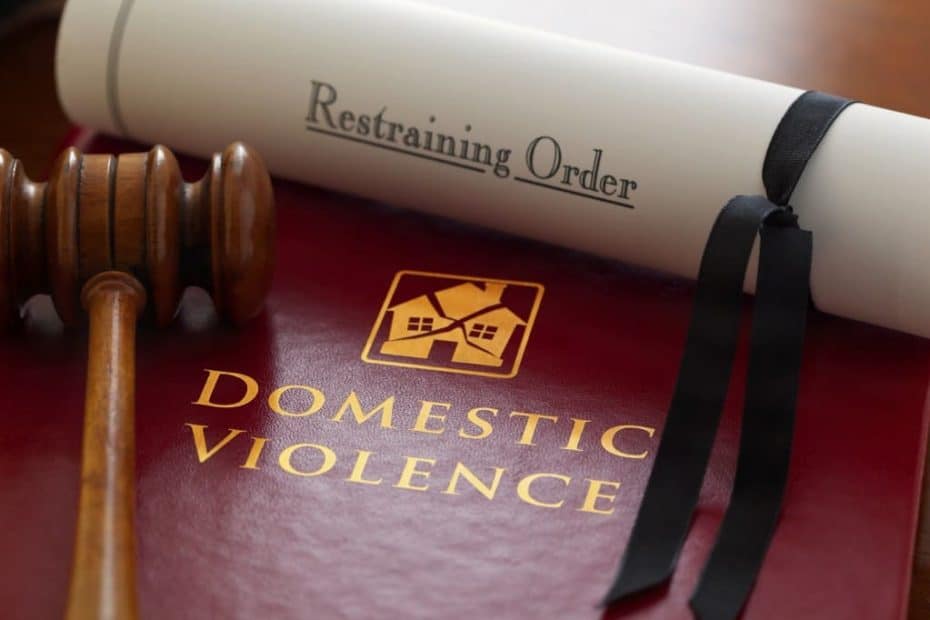If you’re concerned about domestic violence, you’ve come to the right place. Read on to learn more about what you can do if you’re a victim. The state of Georgia has many laws that you can follow if you or someone you know is involved in a violent situation. You can also learn about the repercussions of being convicted for this type of crime and how a protective order can help.
Protective orders
In Georgia, there are two types of protective orders for domestic violence. The first is a temporary ex parte order, which can be obtained without the accused knowing about the proceedings. It can last for as long as thirty days.
A second type of protective order is a permanent one. This type of order is usually granted after the initial court hearing, and can be renewed. There are also no-contact orders, which prohibit all forms of contact between the two parties.
A protective order can be issued for family violence, romantic violence, civil stalking, or even non-consensual online publication of sexually explicit material. Typically, the order will not last longer than a year, but can be extended with the agreement of both parties.
To obtain a protective order in Georgia, the first step is to file a petition in a local county superior court. There is no filing fee required. You can also hire an attorney to help you out.
During the initial court hearing, you will have to prove that the other party is a threat to your safety. If the court feels that the petition is too simplistic, it can dismiss it.
After the initial hearing, the judge will decide whether to extend the protective order for another six months or a year. Alternatively, the judge can remand the case for a new hearing. At this new hearing, both parties will present evidence to the judge.
For a Temporary Protective Order to be granted, the judge will have to believe that there is a substantial risk that the target will cause harm to another person. Usually, the judge will consider the recency of the previous incident as a factor in the likelihood of further violence.
A family violence protective order is an important tool to protect yourself and your family. Violators can be charged with a felony, which may result in a jail term of up to a year.
When you are looking to get a protective order in Georgia, it is a good idea to consult an attorney. He or she can tell you more about the requirements and guidelines.
Self-defense may be successful
There are numerous ways to fight back against domestic violence in Georgia. For instance, one might break up a fight or chase down attackers. However, it is also possible to be charged with a crime for defending yourself. If you have been accused of a violent act, it is important to have a criminal lawyer represent you in court.
In Georgia, the legal definition of domestic violence is any act committed against a spouse, partner, parent, child, or other family member. It can include emotional abuse, physical injury, stalking, and harassment.
Although it’s easy to think of a self-defense law as black and white, the laws governing self-defense vary from state to state. Several states, including Georgia, are “stand your ground” states, whereby an individual has the right to use reasonable force to prevent or avert an imminent threat to their life or property.
In order to prove that you’ve used the right amount of force in the right way, you need to show that you did so in response to a serious, immediate threat. A good example of this would be if you threw a baseball at someone who was threatening you.
On the other hand, a claim of self-defense is likely to be deemed a moot point if you can’t show you were trying to flee. This may not apply to attacks that take place inside a home, but in general, the best practice would be to avoid situations in which your own life is at stake.
There are many factors to consider when determining whether or not you’ve used the proper amount of force. If you feel that your actions are justified, you should consult a Georgia criminal defense attorney to ensure that you’re able to win your case.
In Georgia, the castle doctrine is one of the most important laws you need to know about. This was created to protect individuals from a threat of harm, but it’s only been applied to a few cases.
Although you’ll need to consult a criminal attorney to ensure that you’re able properly defend yourself, a self-defense claim is certainly a good way to demonstrate that you were not the aggressor. When faced with a domestic assault charge, it is always best to speak with an experienced Georgia criminal defense attorney to help you make the most of your situation.
Penalties for domestic violence
Georgia’s penalties for domestic violence are severe. Depending on the nature of the incident, it may include jail time, fines, and child support. A conviction can also cause irreparable damage to an individual’s personal and professional life. It is important to act quickly to avoid these consequences.
In order to successfully prosecute a domestic violence case, the prosecutor will need to prove that the defendant committed a crime, either by physical force or by threats. The prosecution will also need to show that the defendant had the ability to follow through with the threat.
If you are charged with a domestic violence offense in Georgia, you should not hesitate to contact an attorney. An experienced criminal defense lawyer can provide personalized legal advice.
If you are charged with a misdemeanor offense, you may be required to pay a fine, complete community service, or attend anger management classes. In addition, you may be ordered to stay away from your abuser or pay alimony.
Those charged with first-degree domestic violence can face prison sentences of up to 20 years. Repeated acts of domestic violence will increase the penalties. However, the severity of the charges will depend on the type of assault and the number of prior convictions.
Second-degree domestic violence is punishable by a sentence of three years or more in jail. For a third-degree charge, you could face a felony conviction and up to ten years in prison.
When charged with a felony, the abuser can lose custody of the children. They could also be forced to stay away from their children and other family members.
Violating a protective order can result in a fine of up to $10,000. These orders prevent the alleged offender from contacting the victim, and can even prohibit him or her from entering the victim’s home.
To obtain a protective order in Georgia, you must file a petition. This request will be considered by a judge who will issue the order based on the evidence.
Whether you are facing a charge of aggravated stalking, aggravated domestic violence, or another crime, it is important to consult with an attorney who is familiar with Georgia’s legal procedures.
Repercussions of a conviction
Depending on the specific crime, a domestic violence conviction can have a variety of consequences. For example, it can affect your personal life, and your employment. Often, employers won’t hire someone who has a criminal record. It can also have collateral effects, such as preventing you from doing business with banks or insurance companies.
If you’ve been accused of domestic violence in Georgia, you should know what to expect. Although the penalties for domestic violence vary from state to state, the majority of crimes are misdemeanors, meaning that they carry a small fine.
Other penalties include loss of custody of children. A protective order can be obtained by a judge to impose certain conditions on the offender. This can include prohibiting contact with the victim, or requiring the offender to vacate his or her home.
If you are arrested for violating a protective order, you may be subject to a year in county jail. You can also be sentenced to a fine of up to $1,000. The court can also issue a temporary no-contact order, which prevents you from contacting the victim.
If you are convicted of a family violence battery offense, your conviction can remain on your criminal record for a long time. In addition, federal law prevents convicted family violence offenders from owning guns.
You can also be deported from the United States. If you are convicted of a felony for family violence, you can be put in prison for up to five years.
In addition to losing custody of your children, you might have to find a new place to live. Additionally, your employer might not hire you or you might be denied the right to do business with your landlord.
If you have been charged with a domestic violence offense, you should consult with an attorney. An experienced attorney can help you understand the charges against you, and develop a strategy to protect you. Often, a criminal defense lawyer will suggest that you seek an evaluation by a psychologist or Georgia-certified anger management counselor.






